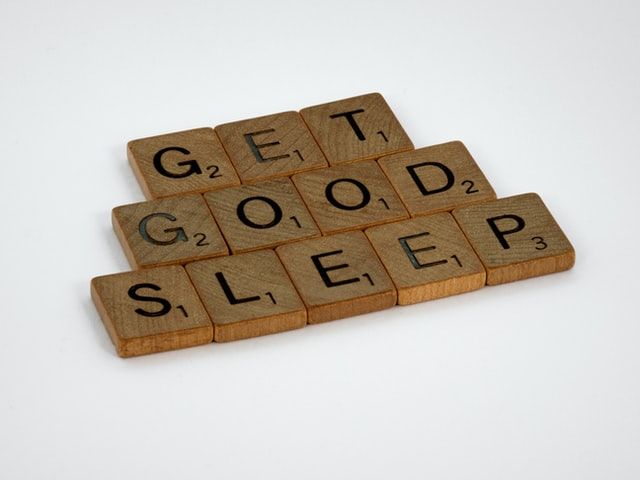
Having a Healthy Sleep Routine Can Benefit Your Health
When school lets out for the summer, it’s not the only routine that gets kicked to the curb. Without the mandatory morning alarms that children and parents become accustomed to during the school year, wake times and bedtimes tend to slide later, and sleep consistency can suffer. Summer vacations — with changing time zones and altered sleep arrangements — can also further distort a healthy sleep routine. Even without travel, longer daylight hours can interrupt your body’s normal sleep cues.
It’s important to enjoy a more relaxed schedule in the summertime, but it’s also important to stay on track when it comes to sleep. Here’s what you need to know about the recommended amount of sleep per age group, how having a structured sleep routine can benefit your health, and how to get back on track after losing your normal sleep routine during the summer.
How Much Sleep Is Enough?
Sleep is an amazing activity that is essential for everyone. During sleep, your body’s cells rest and repair, and your brain stores important memories and prunes out others. Getting enough sleep is especially crucial for children because they are actively learning new skills and need to consolidate a wealth of new information daily.
According to the National Sleep Foundation, the average adult needs seven to nine hours of sleep daily. Infants and children need more sleep, and their current sleep recommendations can be broken down as follows:
Newborns (0-3 months): 14 to 17 hours
Infants (4 to 11 months): 12 to 15 hours
Toddlers (1 to 2 years): 11 to 14 hours
Preschool (3 to 5 years): 10 to 13 hours
School age (6 to 13 years): 9 to 11 hours
Teens (14 to 17 years): 8 to 10 hours
While young children can benefit from naps to cumulatively achieve their daily sleep targets, experts advise against daily naps for adults. It may be tempting to take an afternoon snooze to beat the summer heat, but naps can make it harder for adults to fall asleep at night and they can lead to fragmented sleep patterns.
The Health Benefits of a Consistent Sleep Routine
Sleep has myriad benefits, and getting consistent sleep is the best way to maximize these benefits. According to the Office of Disease Prevention and Health Promotion, people who can consistently meet sleep recommendations get sick less often, think more clearly and perform better at work, have a lower risk for serious health problems such as diabetes and cardiovascular disease, enjoy lower stress and improved mood, get along better with others, have an easier time staying at a healthy weight, and make better decisions that help them avoid injuries.
Unfortunately, the U.S. Centers for Disease Control and Prevention (CDC) estimates that 1 in 3 adults don’t get the recommended amount of sleep — and that was before the COVID-19 pandemic arrived. The National Sleep Foundation notes that “coronasomnia” has affected sleep patterns even further, with around 40% of people noting an increase in sleep difficulties since the onset of the pandemic.
How to Get Back on Track After a Summer Sleep Hiatus
It’s important not to get discouraged even if you’ve noticed a summer slide in your sleep routine or that of your children. There are many ways you can reboot your sleep routine to make sure your family is reaping all the benefits of horizontal hours, regardless of the season.
Experts note that one of the best ways to get back on track with sleep is to commit to designated bedtime and morning waking times, regardless of the day of the week (sleeping in on Saturday morning may feel luxurious but it can rob you of sleep quality later on). Try instituting this “reset” at least a couple of weeks before your children need to be back in school to have the best shot at recalibrating.
Adopting a few crucial sleep hygiene tactics can also help you get back on track. The American Sleep Association (ASA) recommends the following:
- If you drink caffeine, make sure you stop before noon
- Avoid blue light from screens for two hours before bed, or use a pair of blue light blocking glasses
- Exercise before 2 p.m. every day, as exercise can help you sleep continuously
- Make sure your bedroom is cool, dark, and quiet (a white noise machine is okay)
The ASA also recommends that if you are struggling to fall asleep, you should not stay in bed awake for more than five to ten minutes; instead, sit in a chair and rest (or let your mind race) until you feel sleepy enough to go back to bed.
The Bottom Line on Sleep
Getting the recommended amount of sleep regularly can help promote optimal health, and summer fun should not come at the expense of sleep consistency. To learn more about healthy sleep habits, visit the CDC’s page on sleep.
Research and materials for this article were compiled, written, and distributed on behalf of the National Public Health Information Coalition. The views and opinions expressed in this blog are those of the various authors and do not necessarily reflect the official policy or position of the National Public Health Information Coalition or its members.
References:
[1] How much sleep do we really need? https://www.sleepfoundation.org/how-sleep-works/how-much-sleep-do-we-really-need
[2] Get enough sleep. https://health.gov/myhealthfinder/healthy-living/mental-health-and-relationships/get-enough-sleep
[3] 1 in 3 adults don’t get enough sleep. https://www.cdc.gov/media/releases/2016/p0215-enough-sleep.html
[4] Sleep Guidelines During the COVID-19 Pandemic. https://www.sleepfoundation.org/sleep-guidelines-covid-19-isolation
[5] Sleep hygiene tips. https://www.sleepassociation.org/about-sleep/sleep-hygiene-tips/

